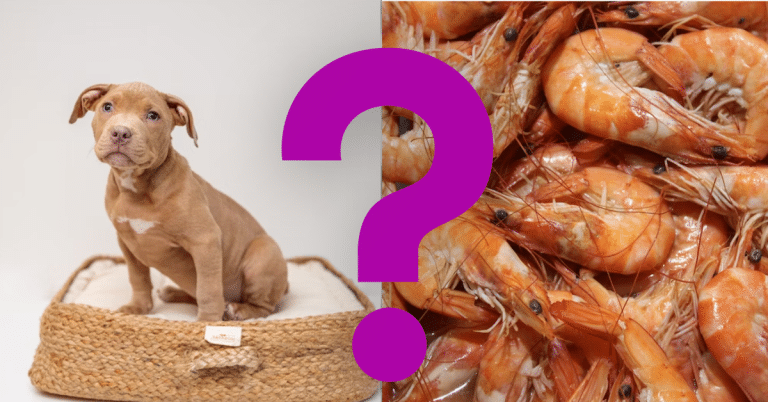Can Dogs Eat Prunes? A Vet’s Opinion

Prunes are dried plums with a sweet flavor and are well-known for having a lot of fiber. But can you feed prunes to your dog?
No, giving prunes to dogs is not advised. Prunes are dried plums with a high sugar content and sometimes a lot of fiber. Larger volumes can upset a dog’s digestive system, resulting in symptoms like diarrhea and stomach pain, even though tiny amounts may not be dangerous. Prunes’ pits can also be a choking hazard, resulting in intestinal blockage. Sticking with dog-friendly goodies and asking a veterinarian for advice on a specific diet is recommended.
Benefits Of Prunes For Dogs
Dogs can eat prunes in modest amounts, but they don’t have any particular health advantages. In fact, due to their high sugar and fiber content, prunes may cause digestive problems in dogs. It’s crucial to remember that eating too many prunes might cause diarrhea, discomfort in the stomach, and possibly intestinal blockage. Therefore, it is typically advised to refrain from giving prunes to dogs to ensure their diet is well-balanced and matches their nutritional requirements.

How To Safely Give Prunes To Dogs
Prunes are not suggested as a standard component of a dog’s diet, but if you still want to treat your dog occasionally, you should do so safely and sparingly. Following are some suggestions:
Consult Your Veterinarian
Speaking with your veterinarian before adding new food to your dog’s diet is always a good idea. Based on the particular medical requirements of your dog, they can offer tailored advice.
Portion Control
Prunes should only be given to dogs in modest, under-regulated doses. Start with a tiny bit and watch your dog’s reaction. You can progressively raise the amount, but always in moderation, if there are no negative consequences.
Remove Prune Pits
Pruning pits might result in an intestinal blockage or offer a choking hazard. So, before giving your dog prunes, ensure the pits are out. Make sure the prunes are pitted correctly and chopped into manageable sizes.
Serve as An Occasional Treat
Prunes should only be used as a treat sometimes and not as a staple food for your dog. Prunes should not be considered a regular meal item but an occasional treat or special snack.
Monitor For Adverse Reactions
After giving your dog prunes, oversee them to see if there are any adverse effects. Monitor for gastrointestinal upset symptoms, including vomiting, diarrhea, or stomach pain. Consult your veterinarian and stop eating prunes immediately if any negative responses happen.
Consider Alternatives
If you want to increase the fiber in your dog’s diet, consider safer alternatives. For suitable solutions that satisfy the unique nutritional needs of your dog, speak with your veterinarian.
Remember that each dog is an individual; some dogs may be sensitive to or allergic to prunes. To protect your dog’s health and well-being, paying attention to their behavior and seeking professional advice is critical.
Overall, prunes may create digestive problems and are not particularly healthy for dogs, even though they are not fundamentally hazardous. It’s better to concentrate on giving your dog food that is appropriate, balanced, and specially made to meet its nutritional needs.
Will Prunes Make A Dog Sick?
If a dog eats a lot of prunes or is sensitive to them, it could ill the dog. Due to their high sugar and fiber content, prunes can disturb a dog’s digestive system, resulting in diarrhea, stomach pain, and gas. Prunes’ pits can also be a choking hazard, resulting in intestinal blockage. Prunes should be given to dogs in modest, regulated doses, and any reactions should be observed. The best action is to stop eating prunes and seek advice from a veterinarian if any negative responses like vomiting or severe gastrointestinal distress happen.
Can dogs eat prunes variations?
Prunes in different forms, such as prune juice or other goods made from prunes, should typically not be fed to dogs. These variants frequently feature higher sugar concentrations and might include extra components that might be dangerous for dogs. Particularly prune juice may have a laxative impact on dogs and cause stomach problems. The best course of action is to follow a dog’s usual diet and get advice from a veterinarian before introducing any new foods or dietary modifications. They can offer advice depending on the particular medical requirements of your dog.

Vet’s Summary
Prunes’ high sugar and fiber content, which may result in digestive problems, makes it unwise to include them frequently in a dog’s diet. Prunes may be safe in moderation for dogs, but it’s still vital to watch for any adverse reactions and only give them a small amount. Prune derivatives, such as prune juice, should be avoided since they could contain more sugar and other potentially dangerous components.
A suggested substitute for providing your dog prunes or products made of prunes would be to think about probiotic supplements. In dogs, probiotics can help maintain a balanced gut flora, which benefits digestion and general gut health. A veterinarian should be consulted before adding additional supplements to your dog’s diet. Depending on your dog’s unique requirements, they can offer advice on the best probiotic supplement, dose, and length of use. They can also determine whether food changes alone can treat your dog’s digestive issues or if probiotic supplementation is required. With the help of your veterinarian, you can be sure that you’re making the best choices for your dog’s health and well-being.
Videos To Watch
If you are wondering if you can give your dog prunes, watch this:
And if you want to know what a dog can NOT eat, watch this:






